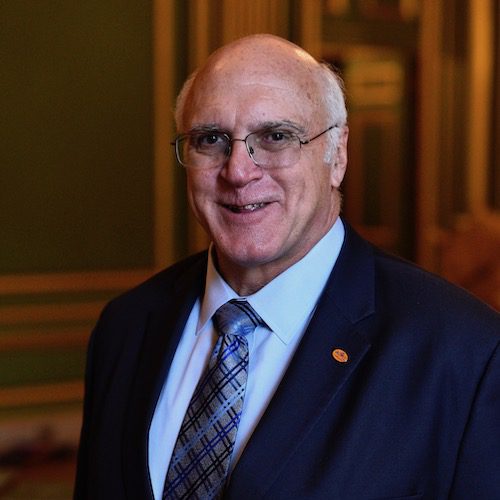
HP Federal Chief Technology Officer Tommy Gardner is a Pinnacle Awards finalist in the Cybersecurity Executive of the Year category. Here, Gardner shares what makes him stand out from his industry counterparts, who his role models are and how he helps shape the next-gen GovCon leaders.
What has made you successful in your current role?
Gardner: The tremendous support I receive from the HP Labs team and the technologists at HP have made me successful in my role as chief technology officer for HP Federal. I am backed by a team of people always willing to help and provide support.
Throughout my career, I’ve never been with a company that works so well together at all layers of management. Beyond my team dynamic, the experiences I’ve developed through my educational background and previous government and industry roles allow me to see things from different perspectives while directly contributing to my success at HP.
What specifically makes you stand out from your industry counterparts?
Gardner: I credit my ability to stand out from my peers to a few role models, who shaped my career path as well as my diverse professional and academic background. My experience ranges from product and services to government, where I have worked on several diverse and highly technical projects.
My first acquisitions job was in advanced technology programs, working directly for the assistant secretary of the Navy. I worked alongside some of the most brilliant people in the Department of Defense, where I focused on future systems. This role allowed me to learn from the technical side of government.
My last job in the Navy was working as deputy for the chief of naval research at the Office of Naval Research. I learned how to work with academia, using both basic and applied research from the Navy to apply it in industry. I would say my experiences in the Navy had a direct impact on my success in the private sector.
Who are your role models/mentors in the GovCon space?
Gardner: Chandrakant Patel, HP senior fellow and chief engineer, is an impressive individual from who I am continuously learning. Chandrakant was elected to the National Academy of Engineering earlier this year, a well-deserved accolade for his contributions in thermal and energy management of information technology systems. What I find inspiring about Chandrakant is that he is an artist and can visualize new concepts and ideas, which he is able to take down to a human level in ways senior management can relate to.
One of my mentors in cyber is Bob Butler, the former DOD’s deputy assistant secretary of defense for cyber and space policy. I learned a lot about the cybersecurity side of government from Bob, who specialized in several roles across information technology, intelligence and national security.
Sam Visner is another thought leader, whose security perspective has helped me define my own. In his role at MITRE as the director of the National Cybersecurity Federally Funded Research and Development Center, Sam helps bring together experts from industry, government and academia to demonstrate integrated cybersecurity solutions.
How do you help shape the next-generation GovCon leaders?
Gardner: I try to mentor one student each year and have them shadow conferences and meetings with me in both tech and cybersecurity industries. Through these internships, HP also provides students with opportunities to own projects and immerse themselves at HP headquarters, with access to myself and Chandrakant.
I also attend hackathon meetups on weekends, where I learn new skills across cybersecurity and engineering from young superstars. These events are training grounds for cyber that help improve technical and mental skills. I admire these students and I recognize that you’re learning from them as much as they are learning from you.
What’s your best advice for aspiring leaders who want to follow in your footsteps?
Gardner: In the future, all products and services are going to be more focused and specialized. My advice when a student is planning their degree of study, regardless of which field of engineering or technical studies, is to take software programming as their language requirement. Computer languages, from R to Python to C++, are just as important as fluency in second languages like Chinese, German, French and Spanish.
For those who want to follow in my footsteps, I’d like to offer advice from lessons I learned in the research community. One of the major themes is that computers and printers are not commodities, Each is uniquely designed with pros and cons from a cybersecurity vulnerability standpoint. I’ve also promoted education on hardware resiliency and how to mitigate supply chain risk. From my experience, these are some of the building blocks to success in today’s industry. You must know and understand the details involved with each design of a product or process.

